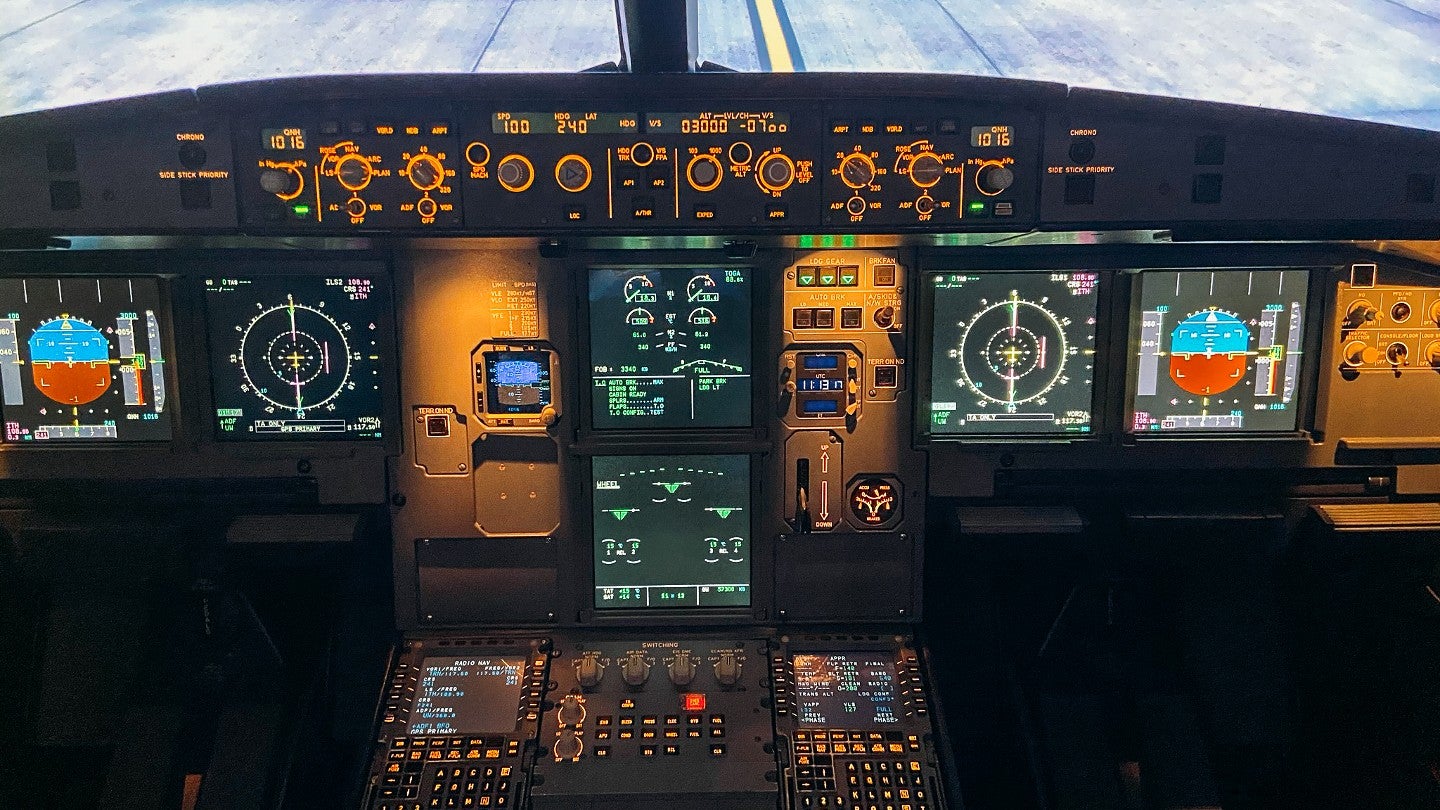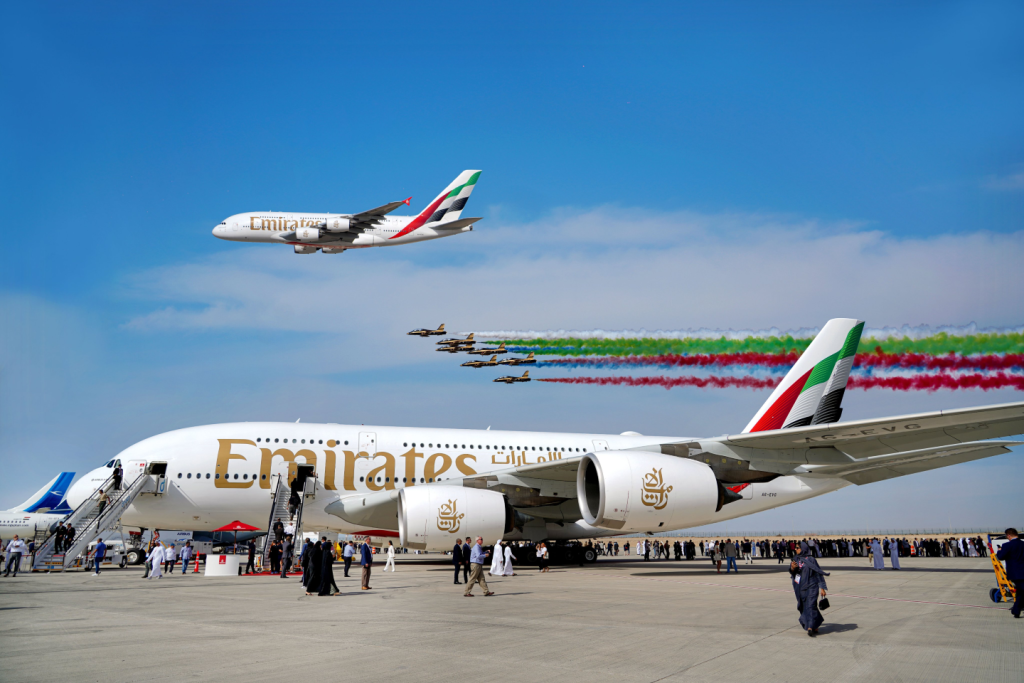
Amid concerns over a rise in ‘spoofing’ and jamming of the global positioning systems (GPS) used for airline navigation, aviation regulators, manufacturers, trade bodies and airlines yesterday (25 January) held an emergency meeting to discuss the issue in Cologne, Germany.
Aviation advisory body OPSGROUP identified a sharp upturn of GPS spoofing, which involves a malicious actor sending counterfeit radio signals to override legitimate GPS signals – causing navigation systems to fail and pilots to rely on air traffic control.
In September, more than 20 private and commercial jets flying over Iran and Iraq were targeted by spoofing, with one business plane nearly entering Iranian airspace without clearance.
This pattern, which has emerged across the Middle East, “poses a serious and dynamic threat to aviation security worldwide”, according to Harpreet Sidhu, aerospace and defence analyst at GlobalData.
“Passengers, crew members, and the operational integrity of airlines are all seriously at danger from compromised navigation systems”, Sidhu told Airport Technology.
Civilian use of GPS was introduced after a Korean Airlines flight was shot down after straying into Soviet Union airspace in 1983. All 269 people on board were killed.
Forty years on, questions are being raised as to whether commercial airlines’ overreliance on that very system is increasing the risk of another geopolitical crisis.
How can GPS spoofing be prevented?
The upshot of the meeting in Cologne, led by international trade body IATA and European regulator EASA, is that multiple solutions will be needed over the short, medium and long term.
“Airlines are seeing a significant rise in incidents of GNSS interference,” said IATA Director General Willie Walsh after the meeting. “To counter this, we need coordinated collection and sharing of GNSS safety data; universal procedural GNSS incident guidance from aircraft manufacturers; a commitment from States to retain traditional navigation systems as backup in cases where GNSS are spoofed or jammed.”
Anti-spoofing technology is, however, mostly classified by military forces or else only bought by the super-wealthy.
“Any sort of rules or regulations would be near impossible to enforce, and most of those who do the jamming will not admit to it,” James Marques, defence analyst at GlobalData, told Airport Technology. “Whoever can develop civilian-grade anti-jamming technology first will tap into a fairly lucrative market, but even then it will take a while to implement on airlines.”
Militarily, spoofing often entails one country sending false GPS signals to an enemy plane or drone to sabotage its functioning ability.
Both Russia and Ukraine have deployed it as a tactic as the war approaches its two-year anniversary.
Russia has frequently rendered Ukraine’s smart bombs inaccurate, while Kyiv’s own spoofing strategies have seen Russian drone losses increase drastically, according to The Coordination Centre for Assistance to Novorossia (occupied Ukraine), a Russian-backed militia organisation.
What alternatives to GPS are there?
The IATA and EASA’s recommendations from the meeting in Cologne bring into light the geopolitical tussles underpinning global satellite navigation – and, more broadly, astropolitics.
Despite being internationally recognised, GPS is just a US-created version of a Global Navigation Satellite System (GNSS), an umbrella term for the technology.
From Google Maps directions and Uber rides to guided munition strikes and commercial airline navigation, GPS is owned by the US government and operated by the United States Air Force.
GPS may be near-ubiquitous, but it is not unique.
Realising it had fallen drastically behind the US’ space-based military assets, Russia developed its GLONASS alternative in 1995, two years after GPS.
Upon taking power in 2000, President Putin made GLONASS a top priority, doubling its budget to create a 24-satellite constellation with global coverage, according to journalist and writer Tim Marshall’s The Future of Geography.
“Sanctions complicate Russia’s ability to persuade phone and car manufacturers to enable GLONASS in their products,” Marshall wrote. “But its military capabilities remain intact and the accuracy of the system is not in question.”
In 2011, the EU launched satellites for the bloc’s own GNSS, Galileo, which is interoperable with GPS.
China, meanwhile, began launching satellites for BeiDou in 2000, but its GNSS did not reach full operability until 2020.
“Which system a country picks usually has political implications,” Marques added. “China will give nations better BeiDou access the more you do trade with them, but it is unlikely these nations feel particularly secure from CCP surveillance.”
Western aviation regulators, manufacturers and airlines are highly unlikely to turn to Russian or Chinese alternatives – but the escalating surge in spoofing foregrounds the need for greater robustness in the US-owned GPS.








